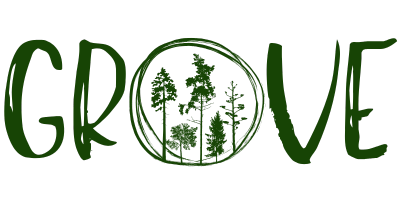What is ‘Mentoring’ and How Can it Support Your Autistic Young Person?

What is ‘Mentoring’?
Mentoring often features as a recommendation for post-diagnostic support, in EHCPs or as part of EOTAS / EOTIS packages but with so many differing definitions and approaches, it can be really tough to figure out what’s right for your young person. We thought it might be helpful therefore to share our perspective on what this kind of support can look like. While it’s impossible to capture every definition out there, here’s our take on some commonly used terms (and it’s ok if others interpret them differently!):
Learning Mentor: Usually describes someone working towards academic aims – often overlapping with the role of a tutor or teacher.
Learning Support Mentor: May be similar to the above, but sometimes with the addition of taking a broader view of the young person’s progress. This may include support around social, emotional, and mental health (SEMH) needs. It also seems to be used for roles similar to that of a teaching assistant.
Community Mentor: Sometimes used to describe someone who supports a young person to access the wider community – often through outings or social activities.
SEN / SEND Mentor: May work in ways similar to any of the above, ideally with specific knowledge and skills related to Special Educational Needs and Disabilities.
Skills Mentor: A term sometimes used for someone supporting the development of specific skills – such as executive functioning, organisation or communication.
DSA Mentor: Someone who is able to work with university students via their Disabled Students’ Allowance.
Autism Mentor: Sometimes used to describe an individual who supports Autistic people and/or their family.
Autistic Mentor: Implying the Mentor is Autistic (like we are at GROVE).
What about ‘coaching’?
Similarly to mentoring, ‘coaching’ is also defined in various ways, we have come across phrases such as:
Autism Coach: Sometimes used to describe an individual who supports Autistic people and/or their family.
Autistic Coach: Implying the coach is Autistic.
Neurodiversity Coach: We find the language of this unclear given that neurodiversity refers to all kinds of brains and minds (Walker, 2012) but it seems to be used to describe a similar role to an ‘Autism Coach’, sometimes expanding to ADHD and other forms of neurodivergence also.
Neurodivergent Coach: Implying the coach is neurodivergent.
Neurodivergence Coach: Similarly to how GROVE uses ‘neurodivergent’ in our name this suggests the coach works (or intends to work) with all neurodivergent people. We have that longer term intention and if that doesn’t happen we will change our name as neurodivergent shouldn’t be used as a synonym for Autistic.
We tend to view coaching as a more goal-directed relationship, often shorter-term and focused on specific outcomes, whether defined by the practitioner or the young person. That said, many use mentoring and coaching interchangeably – which is why it’s so important to look beyond the language.
What really matters is understanding the values, approach and foundations underpinning the work and whether those align with what’s right for your young person.
There are some brilliant mentoring and coaching practitioners and providers out there. ‘Mentoring’ shouldn’t be synonymous with one specific provider, model or a narrow set of practices – it should be a gateway for you to look at a range of options and find the right provider and approach for your young person.
It is also very important that mentoring and coaching do not replace mental health support. If you feel your young person needs mental health support then Thriving Autistic have a directory of neurodivergent, neuro-affirming practitioners you could look at.
Things You Could Consider
When exploring mentoring or coaching options, this table might be a good starting point (click here for a printable version with space to add your own priorities and notes):
|
QUESTIONS |
|
|
Are they neuro-affirming?
|
|
|
Do they have sound, up-to-date autism, PDA and neurodiversity knowledge?
|
|
|
Are they able to explain how their approaches would be tailored to your young person? This might include aspects such as:
|
|
|
Do their values align with yours? |
|
|
Do they seem focused on accepting and supporting your young person – or are they overtly or subtly aiming to change them?
|
|
|
How important to you and your young person is it that the Mentor and young person share neurology and lived experience? |
|
|
What experience and / or qualifications do they hold? |
|
|
How do they engage in reflective practice and continued professional development? |
|
|
Are there strong safeguarding policies and procedures in place?
|
At GROVE, we believe mentoring should be rooted in authentic human connection – offering young people a safe, supportive space where they feel truly seen, valued and embraced for who they are. We hope this blog helps you feel more informed as you explore what mentoring or coaching options feel right for your young person
Written by: Jess Garner (GROVE’s Founder/Director)
April 2025
Find out more about GROVE’s Mentoring.
